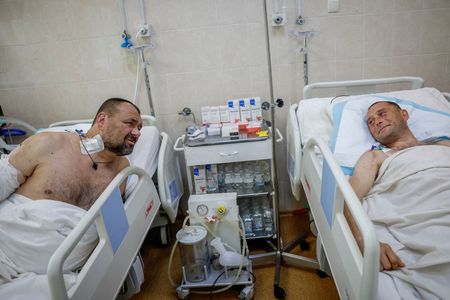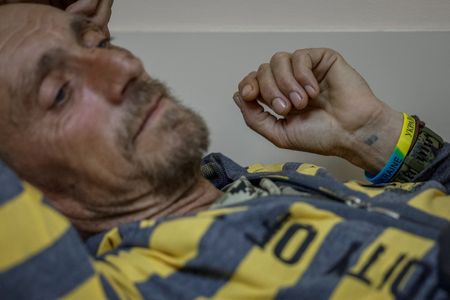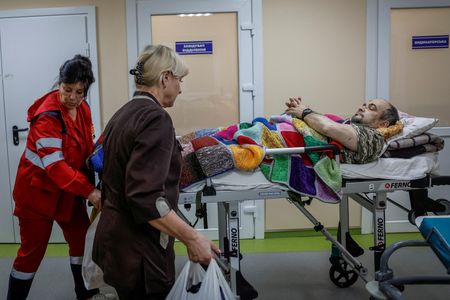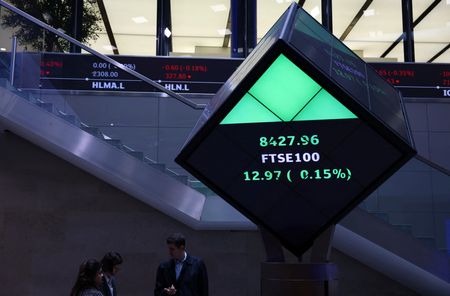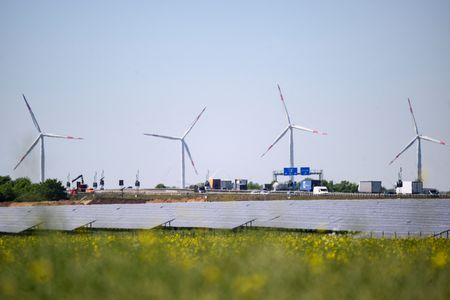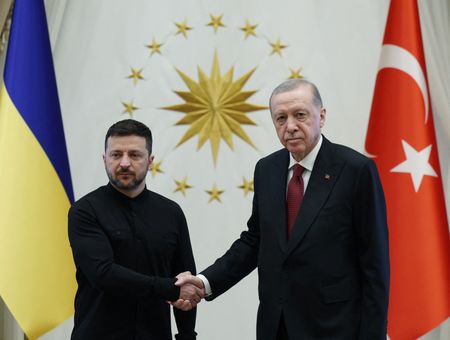By Herbert Villarraga and Alina Smutko
DNIPRO, Ukraine (Reuters) – As a flurry of diplomacy begins in Turkey, Serhii Ryzhenko and his team of Ukrainian medics are yearning for a peace deal after seeing far too many patients with life-threatening injuries pass through their hospital.
The 61-year-old hopes the hospital he runs in Dnipro, little more than 100 km (60 miles) from the eastern front line in Russia’s war against Ukraine, will soon be treating routine complaints from a population at peace in eastern Ukraine.
“Today, combat trauma, unfortunately, has become routine for us and … it does not allow us to completely provide assistance to ordinary residents of Dnipro and other cities,” Ryzhenko told Reuters on a ward at the hospital, one of Ukraine’s largest with some of the nation’s most experienced specialists.
“Tens of thousands of people have passed through our doors alone. I am afraid to give a figure, but the number is of an average Ukrainian city – up to 50,000.”
U.S. President Donald Trump is pressing Ukraine and Russia to move towards a peace settlement to end a war triggered by Moscow’s full-scale invasion in February 2022, wanting the two sides to sign up to a 30-day ceasefire.
But on Thursday, plans to stage the first face-to-face talks since 2019 between Ukrainian President Volodymyr Zelenskiy and Russian President Vladimir Putin were downgraded after Moscow said it was sending officials rather than the Kremlin leader.
“We all believe in the end of the war. We all want there to be no wounded soldiers, and especially civilians. Many of them are suffering greatly,” said Ryzhenko, whose hospital has been at the forefront of the war since 2014 when separatists backed by Russian paramilitaries seized towns in the eastern Donbas region.
“There are already enough human lives that, unfortunately, were lost due to artillery, air bombs and missiles.”
In the corridors of Mechnykov hospital, wounded soldiers are rushed to emergency rooms. Others lie in wards, some with amputated legs, other wrapped in bandages, all hooked up to heart monitors and drips.
“I wish there is this ceasefire soon,” Viktor Cherniy, a 52-year-old serviceman, said from his hospital bed. “So many casualties among civilians and the military, brothers-in-arms.”
It is a sentiment shared by Vitalii Yunatskyi, 40, who has lost part of his leg. “I wish for all of it to end as soon as possible,” he said.
For Ryzhenko, the never-ending procession of wounded soldiers from the frontline means that ordinary people are squeezed out of a stretched healthcare system, something he hopes can be changed with a peace deal.
“And I want our president, and he has been here several times, to lead our country to peace,” he said, his face etched with tiredness. “We believe in him, we want to treat our civilian residents today, do everything possible so that they survive and receive medical care at a high level.”
(Writing by Elizabeth Piper; Editing by Andrew Heavens)

